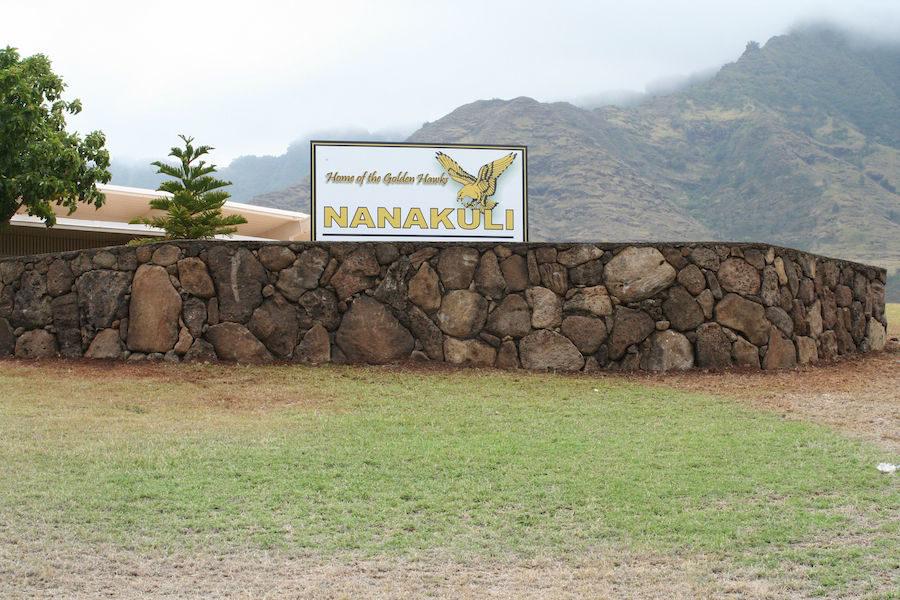A`ali`i allows new opportunities to arise
NHIS offers students who need to recover credits an opportunity to make it up in an individualized classroom known as CSAP.
Kathryn Fisher, one of the CSAP teachers, said, ”Students are able to work on recovering credits during the school day. Students need to be 3 credits behind to be eligible for CSAP.”
CSAP stands for Comprehensive School Alienation Program, but the class calls itself, A`ali`i which stands for a native Hawaiian plant.
Jewelynn Kirkland, a CSAP teacher, said, ”It’s a native Hawaiian plant that is resilient to wind and drought, so these students that are in this program are students who have struggled and are trying to get back on track.”
The teacher’s main goal in working with the students is helping them.
”It’s important for them to reach their goal, in this case either graduate or become tenth graders,” Kirkland said.
In these classrooms they take a different approach to make sure their students are fully engaged and always interested by doing many different activities.
Fisher said, ”Students do hands-on projects. They work in the community 1-2 days a week. Students are building fishponds at Kaʻala, doing water quality testing at Loko Ea in Haleiwa as well as working at other community sites.”
“There are no challenges about being in CSAP because everything we do in this class I really like doing it. It is fun and it is like we are teaching ourselves how to grow our own fruits and more,” said an A`ali`i student.
Students who are in these classrooms have some differences then the students in the other classrooms. They stay within the classrooms for six out of seven periods, they allow the students one elective each and that is for their sixth period.
Kirkland said, ”Just because it’s Tuesday, Thursday, 1,3,5,7 those we kind of consider those as our core days because we do everything. Were doing social studies, we’re doing english, were doing math and science out in the field.”
These students are not only learning about things all students learn about but also learning about their culture as well as helping their community.
Fisher said, ”Working within the community to provide valuable field experiences for students to learn about sustainability while connecting to their culture.”
Also allowing some students to get better grades and to see things in different way then how they used to look at things.
“They really helped me get a passing grade and change my ways of how I look at my fellow classmates and the way I look at the world and what I can do to help the `āina,” said an A`ali`i student.
One of the main goals of our school is to have as many seniors graduate as possible by participating in this program.
The ninth graders goal is more about having the students be able to comfortably adjust to having to work with the other students while moving up a grade.
Kirkland said, ”The ninth graders to be tenth graders still have to assimilate back in with the rest of the school. They need to have that skill, cause right now they only see us and themselves.”
Like with any classroom there are still challenges teachers and students face and are always trying to overcome as one.
“We don’t necessarily have behavioral issues it’s about being here, being present. It’s really their attendance that’s still a problem,” said Kirkland.
”I think the most challenging thing about being in CSAP is doing the same thing over and over again. Because it gets boring later on and I always feel lazy so I think I don`t need to go but I do,” said an A`ali`i student.
One solution they are using is a Wide Truancy program that helps the students who don’t come to class, want to come to class.
Kirkland said, ”They do go to a Wide Truancy program, why are they truant, and what should they do to not be truant.”
A Wide Truancy program is used to help address the root cause of truant behavior and links families to needed social services or other community based supports.
The CSAP program has changed some students lives for the better and have let them have new experiences.
A senior in the CSAP program said, “CSAP has helped me learn a lot on the field trips, and in the classroom. I`ve done a lot of things I`ve never done before. Planting, paddling, even hiking. This class has helped me experience more, and have an amazing senior year.”



Jewelynn Kirkland • Aug 15, 2023 at 2:05 pm
Aloha!
Mahalo for this article. We pretty much do the same type of things today. We are currently going through the process of reviewing transcripts and will begin interviews tomorrow.